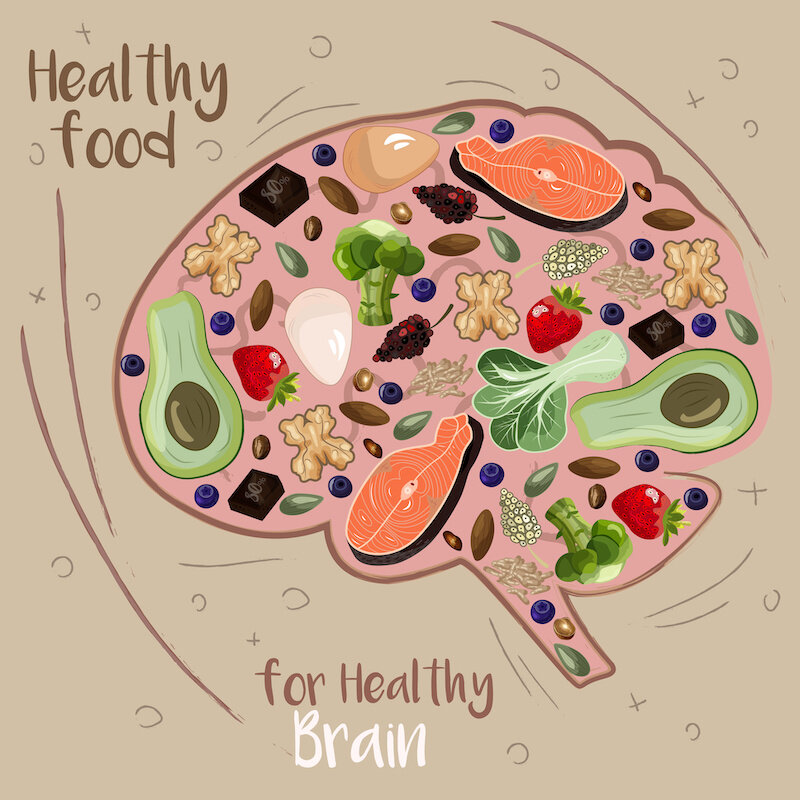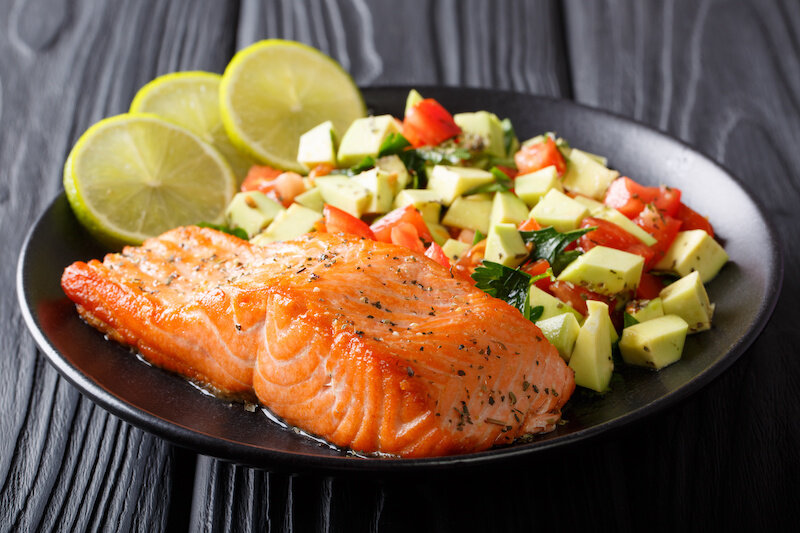Eat These 5 Foods To Lower Your Anxiety
What if you changed the way you approach your food? What if your food choices depended less on taste, convenience, and popularity and focused more on the function and benefits it provides? What if the foods you chose helped you live a longer life with fewer illnesses and less stress? What if your food choices hinged on reducing your anxiety? Conversely, what if you viewed the foods that contribute to your stress differently?
I know. Here I am again talking about stress and the long-term effects of chronic stress. It is not pretty what happens to our bodies when we leave our chronic stress unaddressed.
• Anxiety affects 40 million people in the United States.
• In the workplace, 56 percent of people report that anxiety and stress impact performance.
• 72 percent of workers say that work-related stress carries over to their personal life.
• I lost my sister (age 55) to stress.
Yet, the statistics continue to astound even me, who teaches individuals, small groups, and organizations how to address chronic stress. What surprises me most is there is little effort to help their teams cope with a world of increasing stress. Based on our own research at Alexandria Wellness, this is in part because leaders are also under tremendous chronic pressure, and there isn’t a built-in mechanism to communicate simple ways to address it.
Based on my 20 years in this industry and my own hands-on research, these are the common practices that increase stress:
• Unreasonable to-do lists
• Unplanned meals
• Always striving
• Impatience
• Judging – yourself and others
• Less than seven days of exercise per week
• Toxic relationships
• Unaddressed sleep issues
• Comparison syndrome
• Poor diet
• Menopause
• Anger and worry
• FOMO
• Too much social media and news
• Letting Go – Letting Be
• Fixed mindsets
• Fear of uncomfortable conversations
• Unresolved family/emotional issues, pain, or trauma
• And much more
It is well documented that there is a relationship between nutrition and mental health. Food choices are directly associated with risk (or prevention of) of depression. Frequent consumption of processed carbohydrates could increase the risk of depression and anxiety - for example, through repeated and rapid increases and decreases in blood glucose. If it has a label, it increases your stress.
What decreases stress?
• Ample and quality sleep (eight hours!)
• Consistent physical movement, not only in the workout yet throughout the day
• An active mindfulness practice
• Mastering breathwork
• And… eating stress-fighting foods!
Want to eat to decrease your stress? Fuel your brain! This is where stress starts and remains. This is where the stress we feel causes our bodies to hold onto fat. This is where our bodies feel the chain reaction of fixed mindsets, shallow breathing, and hurried lifestyles. Ultimately, our brain suffers, and the effects are felt throughout our bodies. Here are five foods that will fuel your beautiful brain – which consumes 20 percent of the calories – to calm and “respond,” not “react” to stressful circumstances.
Wild Salmon and any other fatty fish like sardines and trout. 60 percent of your brain is made of fat, and half of that fat is Omega-3. Omega-3s build brain and nerve cells, and these fats are essential for learning and memory, and a diet rich in them is associated with lower rates of anxiety. Salmon contains tons of Omega-3 Fatty Acids, which can help calm the brain. A diet rich in EPA and EHA has been proven to help lower rates of anxiety.
Dark Chocolate – A mood booster yet also has been found to gather in the areas of the brain that deal with learning and memory. Researchers say these compounds may enhance memory and also help slow down age-related mental decline
Blueberries - Some antioxidants in blueberries have been found to accumulate in the brain and help improve communication between brain cells and have been found to delay brain aging and improve memory.
Coffee – Gives increased alertness: Caffeine keeps your brain alert by blocking a chemical messenger that makes you sleepy; it improves mood and may also boost some of your “feel-good” neurotransmitters, such as serotonin, and gives you sharpened concentration.
Pumpkin Seeds - Pumpkin seeds are rich in many antioxidants, which protect our cells from disease damage and reduce inflammation, the true culprit behind most illnesses.
If you’re someone who struggles with chronic stress and/or anxiety, start by putting down processed foods and nourish your brain and body with foods that will help you feel your best. Sign up here for my newsletter at www.alexandriawellness.com or email me directly at adrien@alexandriawellness.com to discuss your company’s need for wellness help as we begin the transition back into the “new normal” workplace.



